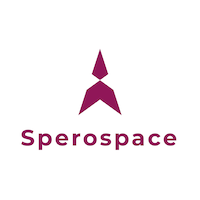☀️ Earlywork #7: Corporate vs. Startup Careers
Featuring roles from Startmate, PETSpot, Zoomo & more + interviews with Anshul Jain (Co-Founder @ Elenta, Ex-Amazon) & Bohan Deng (Founder @ Sperospace)
Hey gang!
It’s ya boi Dan and it’s time to d-d-d-duel with Chapter 7 of Earlywork, a newsletter focused on shortlisting the best roles for students & recent graduates across tech & startups in Sydney (+ remote roles).
If you’re not already part of the crew, subscribe now to keep a pulse on our latest stories and conversations:
Wanted to share two little wins that give me a lot of fuel in putting time into building out career resources for young people:
In the first-ever Earlywork newsletter, I feature a Web Developer role at SafetyCulture (a unicorn SaaS startup building safety reporting tools for companies), and weeks later, I found out one of my earliest subscribers, Alec Caley, actually ended up landing the role! Huge congrats Alec :)
In the first ‘One Minute Hustle’ newsletter segment, I was fortunate enough to chat with Misha Cajic about his startup Airshuffler. An Earlywork reader reached out to Misha and is now doing some UX design + research work for them! A fantastic attitude from this reader, and something I will stress time and time again. If you see a startup and think, oh, they’re doing some dope stuff, no harm in reaching out to them! Low downside and high, high upside.
If any of the resources I’ve shared have helped you, please let me know! It’s awesome to hear about positive stories like these… and if not, well hey, let me know what sort of content would help you. 😉
💡 Weekly Cheeky Tip:
Pros & Cons of Starting Your Career in Corporate vs. Startup feat. Anshul Jain (Co-Founder @ Elenta, ex-Amazon)
One of the biggest questions I’ve seen young tech-inclined folks grapple with (myself very much included) is the dilemma of whether to join an early-stage startup or mature tech company as someone early in their career.
Throughout uni, I placed a deliberate focus on building experiences across a range of company sizes to answer this question, including:
A pre-launch startup testing with their first users
A seed-stage startup looking to scale their platform nationwide
A Series B scale-up expanding across several markets
Several mature global tech companies with 100,000+ employees
I ended up making the decision to join a more mature tech company (Atlassian) as an Associate Product Manager starting next year, but I would still advocate that you should strongly consider joining an early-stage tech company when you’re starting off your career (and absolutely try to get experience with one whilst in university).
Ultimately, there’s no one-size-fits-all answer. It comes down to what you want out of life, what skills you have, and how you like to work, and every role will have its own nuances in responsibility, team, skillset, etc.
I can’t tell you what’s best for you specifically, but what I can do is describe the general patterns of comparative advantage that I’ve seen in working for startups and corporates respectively.
A caution to the reader: these patterns may not be consistent across all such companies, and are things you should actively ask about when applying for roles.
Advantages of Starting at an Early-To-Mid Stage Technology Company
Breadth of Learning: Whilst my corporate roles tended to focus on a more narrow skillset had a tendency to plateau, one of the biggest things I enjoyed about startups was how many different areas I learned about. My most recent role involved analytics, digital marketing, operations process design, competitor research, customer success, recruiting, graphic design, copywriting, legal work, you name it. In general, I have found the diversity and rate of learning at startups to be higher.
Fast-Paced Environment: Whereas corporates usually take a lot longer to decide on and implement changes (layers of hierarchy, internal knowledge complexity, level of risk if something goes wrong, etc.), startups have the simplicity and flexibility to execute and learn quickly, which I found to be a super rewarding feedback loop.
Modern Tech & Tool Stack: In corporate, you’ll probably spend time learning how to use inefficient internal company tools and company-specific processes. The opportunity cost is more useful learning; once you leave, this knowledge can’t be leveraged elsewhere. Startups tend to use a lot of super slick and easy SaaS tools to work more effectively, and better yet, if you find a tool or process you like, it’s much easier to get the rest of the company using it too.
High Autonomy & Ownership: It’s equal parts scary and exciting how much responsibility you can get handed as a young person at a startup. Whereas in mature companies, a junior role might consist of making slides look pretty, you’re a lot more likely to own entire projects or even whole business functions as an early startup employee.
Potential for Equity in Company: A distinct financial advantage of startups is being able to offer early employees a non-trivial chunk of equity. So if you think you’ve come across the next Uber or Airbnb, there’s a chance you might get hella cashed-up (but odds are, it’s probably not going to be that big).
Work on Unsolved Problems: One thing that really attracted me to startups was the chance to build products for problems that had few or no existing solutions, something that feels really rewarding. In corporate roles, I’ve often found that work is more so focused on incrementally tweaking existing solutions to differentiate from competitors.
Advantages of Starting at a Mature Technology Company
Strong Brand Equity: When you’re early in your career, chances are you don’t have a huge track record of work to show people “Hey, I’m vaguely competent”, and by joining a large tech company, there’s a brand name recognition whereby others presume you were strong enough to pass a competitive, structured interview process + got trained by experienced people in core work processes.
For better or for worse, people use brands as a surrogate indicator for someone’s competence in their given field. Think ‘ex-Google engineer’, ‘ex-Apple designer’, etc. There’s an undeniable utility in having these sort of brands on your resume, both for exit opportunities at other companies, and obtaining investor interest if you wish to start your own venture.Structured Learning & Development: Especially as a junior employee, more mature tech companies have the upper hand in providing a ton of internal training course, and teaching skills that have been battle-tested and formalised by a successful company. Startups do have more ambiguity around how and what to learn at work, which isn’t for everyone.
Formalised Mentorship Opportunities: The pool of people available in mature tech companies is an advantageous resource for finding mentorship opportunities across different skills and insights you’re looking to gather. Oftentimes, this even manifests in being assigned a dedicated mentor who helps align your work with your development goals. In startups, you don’t typically have this breadth of mentor access, and the onus is often on you to build a mentor relationship.
Immediate Scale of Impact: You can join a mature tech company and instantly work on a product that affects millions of users (often including family and friends), which is pretty cool in terms of impact visibility. In joining a startup, to get to this scale usually takes many years, and that’s if they’re lucky enough to survive that long.
High Compensation: Let’s not beat around the bush here. The big tech companies (at least the profitable ones) have the cash to offer salary packages that are a fair bit higher than most startups. Now, I would generally optimise for learning over $$$ in the earlier stages of one’s career, but money is nonetheless a tool that gives you the opportunity to 1. Fund your own ventures and 2. Fund your own learning by buying external courses and experiences.
Lower Risk: A Google/Amazon/Atlassian-type company probably ain’t gonna shut down tomorrow. A blockchain for ice cream startup? Dubious. I think if you’ve already built up some decent experience + skills, job security shouldn’t be a massive factor, but people have different levels of risk aversion.
Now I’m just one dude with a couple years’ experience, so, in musing over this topic before I graduated, a person I found super helpful to speak to was Anshul Jain (Co-Founder @ Elenta, a learning & development platform), who’s gone from startups to corporate and back again!
He’s written up two great pieces on Notion on Knowledge Specificity and Big vs. Small Companies explaining his insightful thesis on this dilemma; as a taster for ya, I’ve collated some of Anshul’s key insights across these two pieces below:
"When deciding what to learn, a useful question to ask is "how many types of problems is this knowledge relevant to?". I call this measure knowledge specificity, which ranges from specific (a small number of problems) to general (a large number). General knowledge is valuable, hard to automate, and difficult to acquire.
Take the example of learning through career progression. You can carve out 3 rough verticals on the specificity spectrum from most to least specific:
Company-specific knowledge - things like knowing how to play a specific company's political game, how to execute their processes efficiently, or what a unit's org chart looks like.
Domain-specific knowledge - for example, someone who moves between retail, supply-chain and e-commerce has transferrable knowledge that will be useful in each role in that industry.
Skill-specific knowledge - transferrable across all companies, and domains. At the broadest level, this could be problem-solving, negotiation, or decision making, but could also include Excel and PowerPoint.
If we want to maximize future options, we should prioritize learning things that are more general, because general knowledge will allow us to work well on a larger number of problems. This gives us more mobility between contexts - in this example, companies and domains.
Now, in considering big vs. small companies, consider the following two measures that correlate with company size:
Knowledge Specificity - the number of problems that knowledge is relevant to. At large companies, roles tend to be more specialized, and there tends to be more red tape. This means that the knowledge acquired in those roles is more company-specific (how to manage company-specific processes, and red tape), and domain-specific (specialized roles). Small companies on the other hand - due to lack of resources and red tape, offer more exposure to different tasks.
Feedback Time - how long it takes to have an idea, implement it, see results, and then learn from those results. At large companies, it generally takes longer to get things done, than at small companies. This means feedback loops are longer, and the experimental learning process is slower.
However, large companies offer the benefit of validated methods - processes that have been refined through experimentation. Large companies learn valuable lessons when they grow, and it's a lot faster to learn these from them than to learn them again yourself.
Small companies, with people who have experience at large companies, offer the best of both worlds. They have short feedback loops with exposure to different types of tasks, but also the knowledge of best practices that comes from lessons learned by large companies as they grew.”
Food for thought… 🍔
⛅ Intern & Part-Time Roles
🛠️ Technical
Junior Software Engineer, WageTap (via Hatch)
Platform that helps workers access their earned wages on-demand.Software Engineering Intern, Freelancer
Marketplace connecting business & consumers with freelance workers.DevOps Engineer (Part-Time), Foxo 🌏
SaaS platform allowing doctors, nurses, and allied health connect, communicate and collaborate.IT Engineer Intern, Cisco
Global tech company that builds software and hardware for networking and telecommunications.Software Development Intern, Viewpoint
End-to-end software solutions across the construction industry, from planning/bidding to construction and facilities maintenance.Software Engineering Internship, Space Services Australia 🌏
Satellite digital twin simulation platform that simplifies satellite design, functional testing and operations by allowing users to test virtual satellites.
🎨 Creative
Marketing Intern, Amazon Web Services
Global provider of on-demand cloud computing services and APIs.Growth Marketing Intern and Content Marketing Intern, Sellable
Platform for easily buying and selling residential property.
💪 Business
Student Internship Program, Startmate
Super cool program from early-stage accelerator and VC Startmate with a bunch of summer internships available across their portfolio companies. You can check out the list of companies here.Charging Intern, Tesla
Electric vehicle and sustainable energy company created by some dude called Elon Musk.Summer Intern, AmazingCo 🌏
Marketplace for booking local events and experiences.
🌞 Graduate & Full-Time Roles
🛠️ Technical
Junior Software Engineer, Coder One
Early-stage platform for developers to build AI for multiplayer games.Software Engineer, Shippit
A shipping engine for modern retailers that saves time, money and removes friction in the delivery process.Python / GoLang Engineer, Local Measure
B2B customer experience SaaS for hospitality, tourism and retail brands.Software Engineer, Simply Wall St
Platform helping everyday investors to understand complicated financial data and make better, non-emotional financial decisions.Backend Developer, PETspot
Online platform connecting Australians to verified breeders, shelters and rescues for pets. Though their listing says Mid/Senior, the team mentioned they’re open to bright students/grads with 1-2 years experience.Site Reliability Engineer and iOS Engineer, Zip
Leading Australian buy-now, pay-later provider for shopping.
🎨 Creative
UX Frontend Developer, Hudled
B2B tool to manage SaaS expenditure and redundancy.Content and Technical Writer and Content Designer, Tiliter
Retail software that uses computer vision to recognise products without barcodes.Product Designer, ArchiStar.ai
Artificial intelligence that helps property professionals find & assess profitable land development sites.Marketing Associate, Zoomo
Subscription platform for utility e-bikes and aftermarket servicing.Marketing Associate, Curious Thing AI
AI interview startup digitising phone interviews so recruiters can make smarter shortlisting decisions.Marketing Coordinator (Graduate), ipSCAPE
Cloud communication technology for sales, service and support.Content Writer, ClassBento (via Hatch)
Booking platform for thousands of workshops and experiences, both online and in-person.
💪 Business
Junior Product Manager, Simply Wall St
Platform helping everyday investors to understand complicated financial data and make better, non-emotional financial decisions.Growth Hacker, Similar
Machine learning tool helping you find a cheaper price for what you're shopping for online.Business Analyst, Mable
Online marketplace for hiring aged care support workers.Customer Success Associate and Marketing Coordinator, Sellable
Platform for easily buying and selling residential property.Customer Experience Specialist, Syncio 🌏
Collaborative eCommerce platform for retailers to share inventory across online stores.Customer Experience Team Member, Eucalyptus
Healthtech brand engine building digital healthcare companies.Customer Success Support, Yarno (via Hatch)
Remote microlearning platform for businesses to educate their workforce.Sales Development Representative, Humanitix (via Hatch)
Not-for-profit ticketing platform for events.
🌏 = remote role
1️⃣ 🕐 💪 One Minute Hustle
We are back once again with One Minute Hustle, a bite-sized interview with an emerging Australian young startup founder or operator. Today, let’s get inside the noggin of young aerospace entrepreneur…
Bohan Deng, Co-Founder & CEO of Sperospace
What are you working on? My startup, Sperospace, is developing robotic systems for in-space satellite assembly and servicing. Legacy satellites suffered from launch constraints and reliability issues caused by an inability to be upgraded or repaired post-launch. Our technology ensures next-generation satellites are optimised for their value-generating mission instead of being focused on surviving launch.
How'd you get started? It was about being aware and taking advantage of the opportunities that were presented when the Australian space industry started booming two years ago. I've always been passionate about space and received plenty of guidance from industry veterans which provided the knowledge foundation to found a startup. If you're someone looking to start a business, don't be the guy who dives headfirst into an industry with a solution (blockchain) without first understanding the problem.
Why do you do what you do? I do what I do because I want to make a truly global impact, and the best to do that is to help build the orbital infrastructure that makes it easier for humans to utilise and travel to space. Admittedly a big bite to chew, but I'm rather persistent once I get started.
*NBA buzzer sound*
We are outta time!
If I haven’t quenched your weekly thirst for student careers content, StartUp Link is running a free online panel on how students can be proactive when it comes to job hunting and working remotely, featuring guests from Blackbird Ventures, Finder, Snowflake, and Tiliter. You can sign up here.
And y’know, the usual shtick: leave a comment if there’s something you’d like to see in an upcoming edition:
If you’re a zesty student careers fanatic, come join the Earlywork Gang on Slack to:
Be the first to hear about new initiatives that Earlywork will be exploring.
Share suggestions and preferences on content and services to be incorporated into future Earlywork newsletters & associated offerings.
Discuss key pain points in jobseeking, applications, interviews, and all that jazz, for early-career roles in tech & startups.
Ciao for now,
Dan







